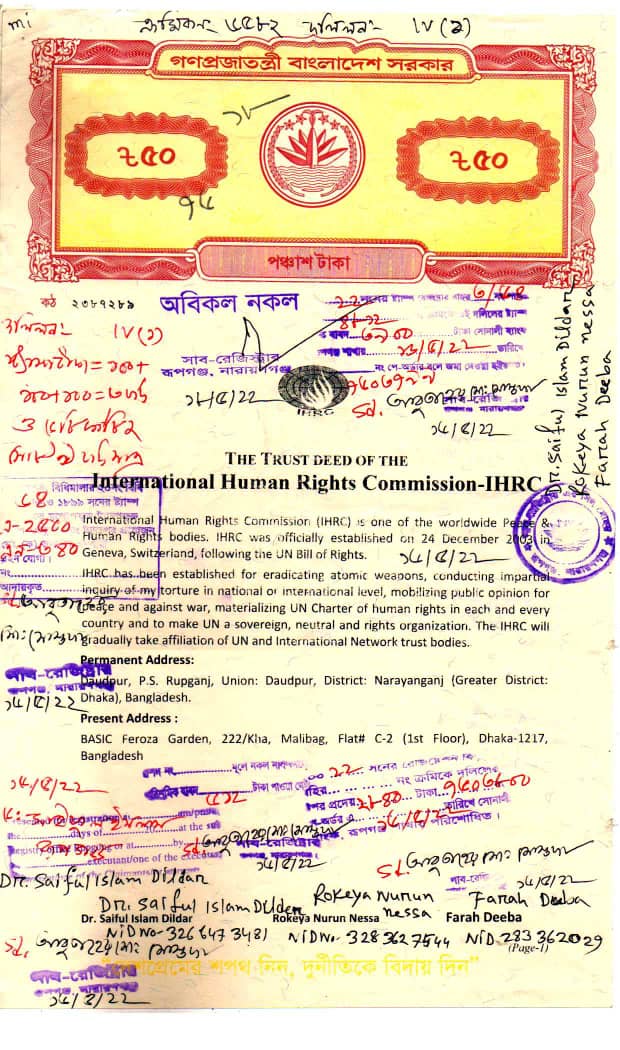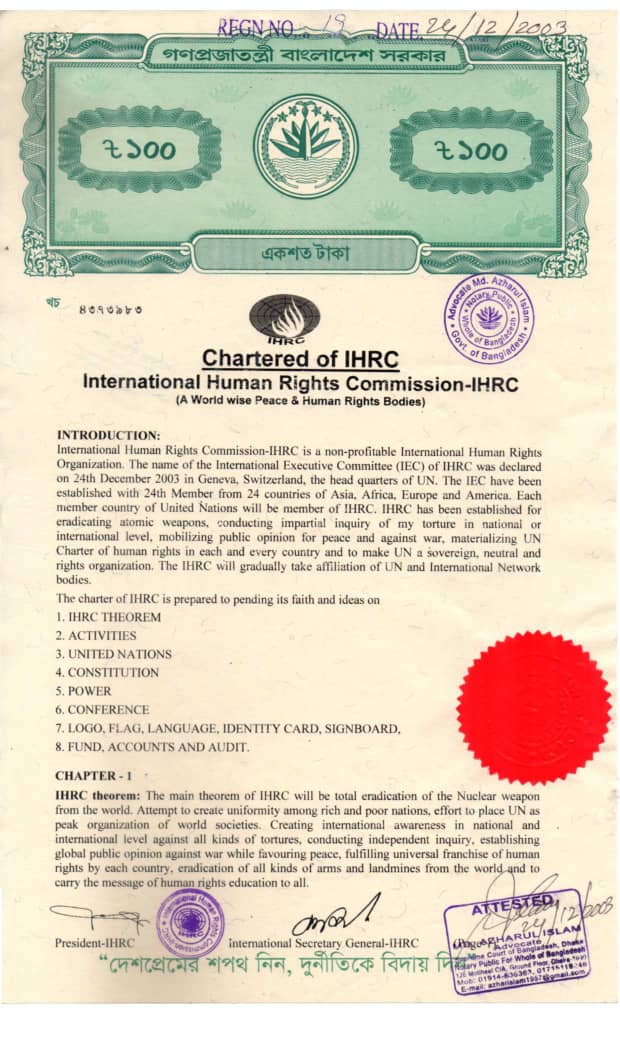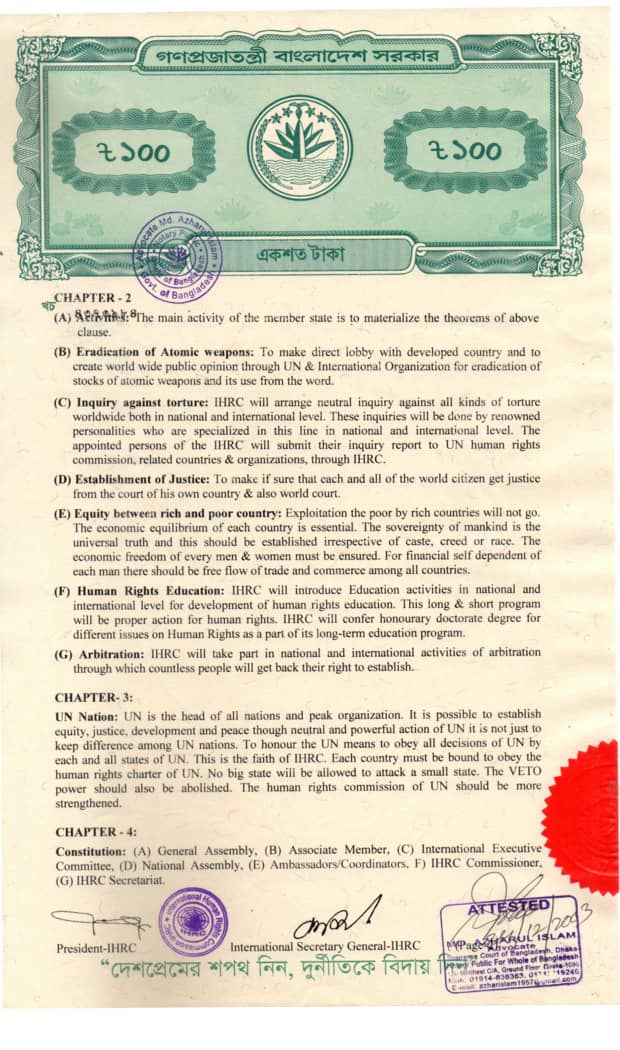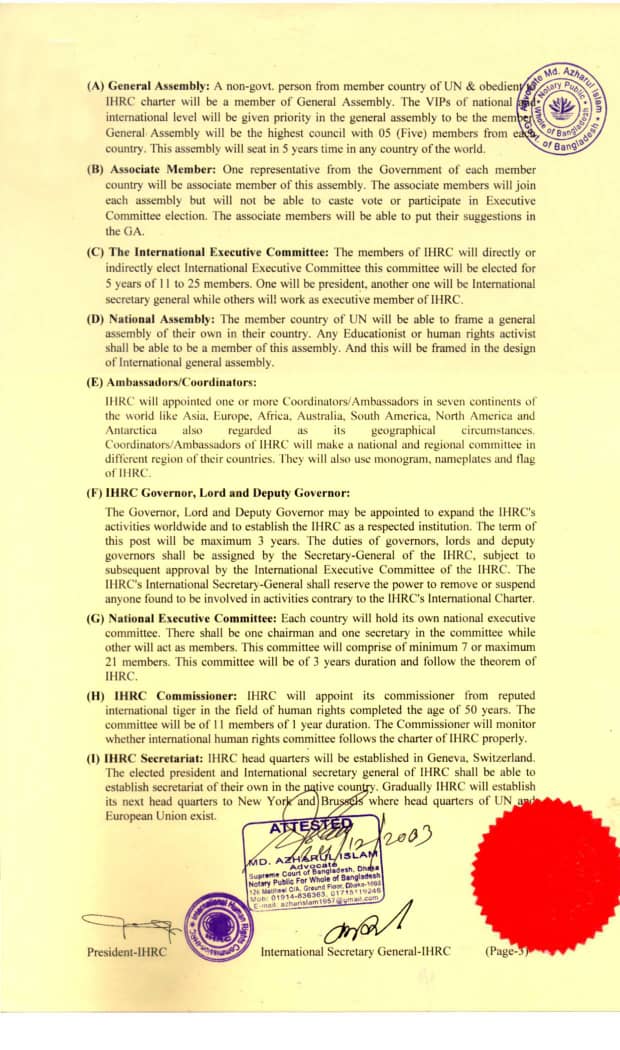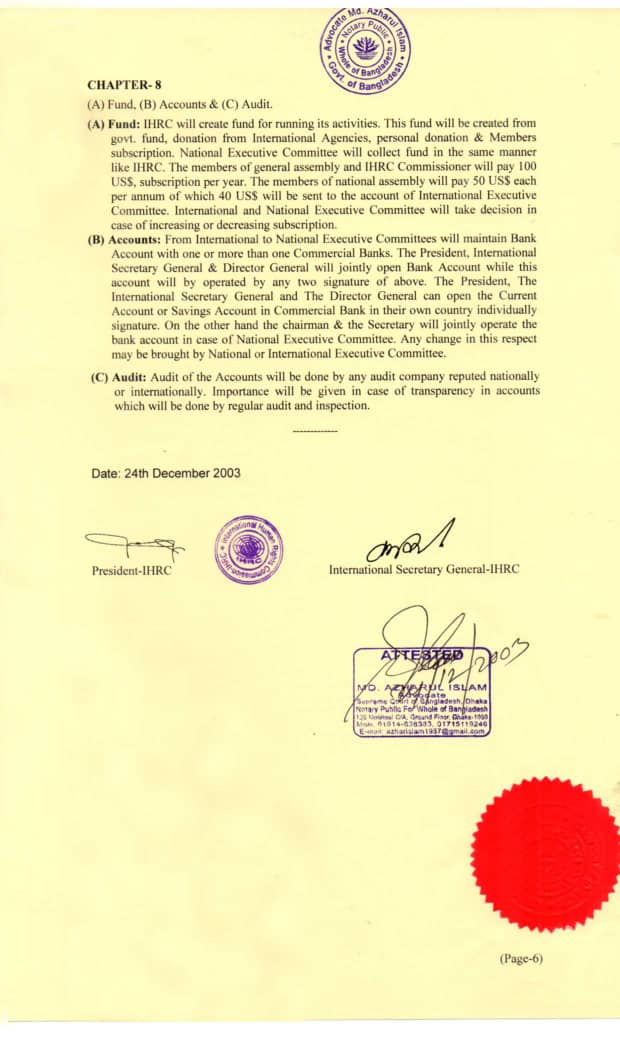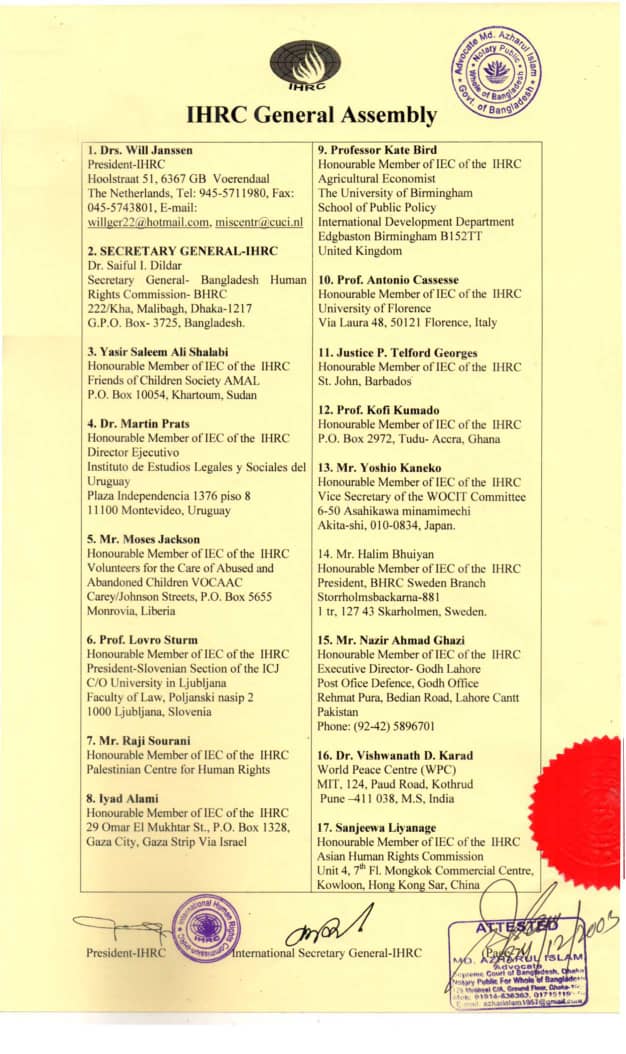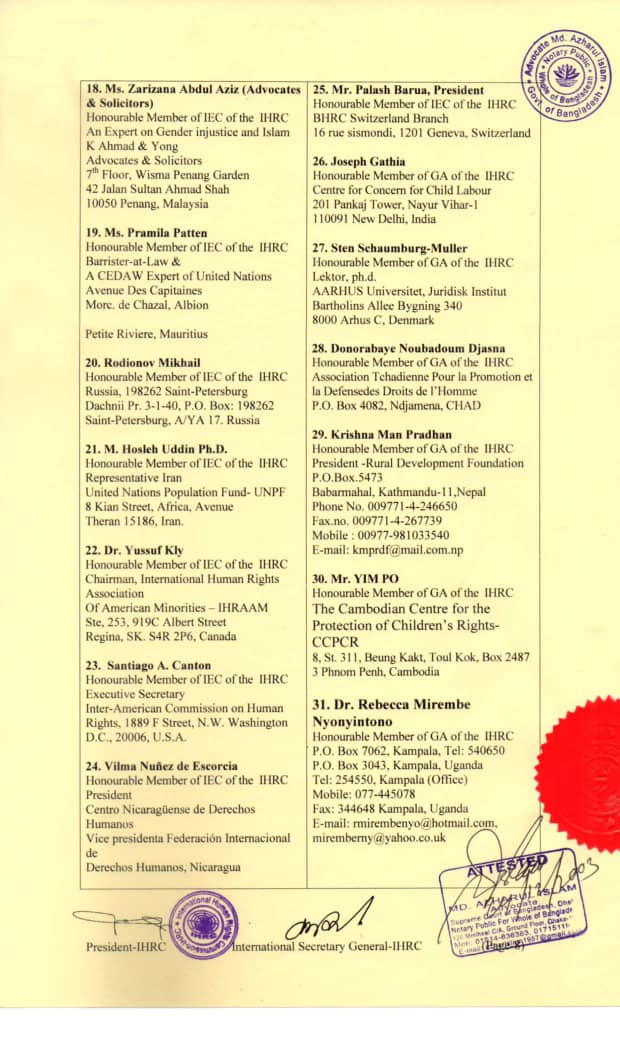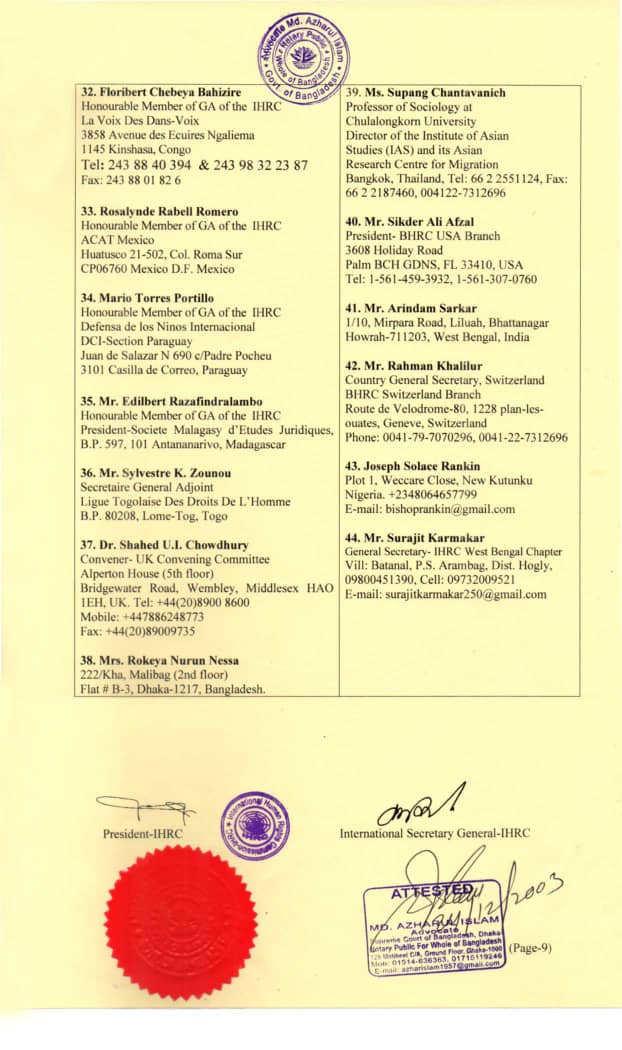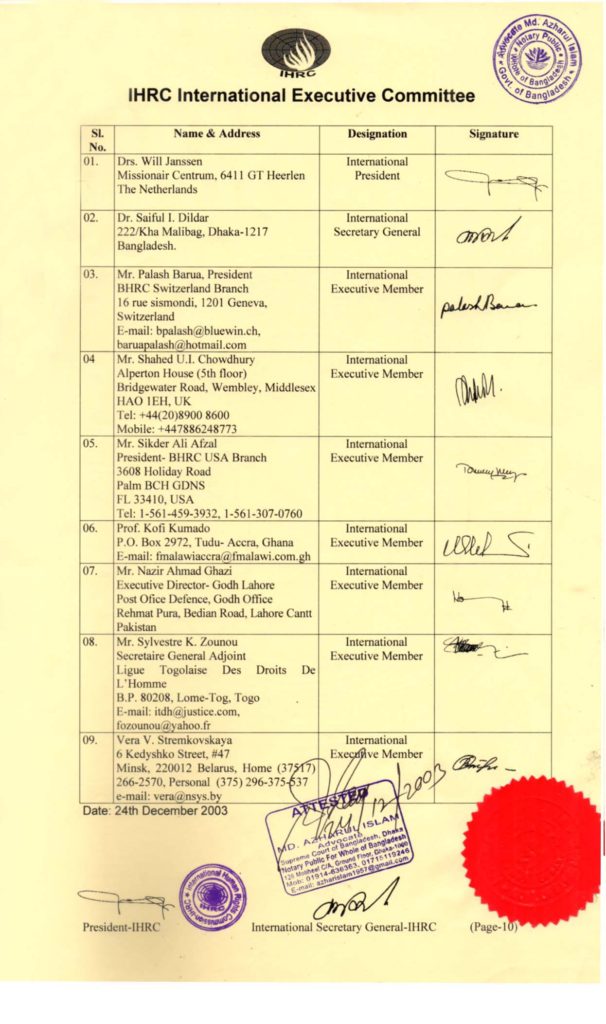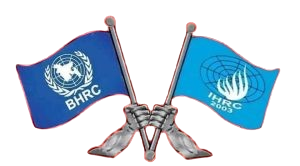The IHRC Geneva Charter
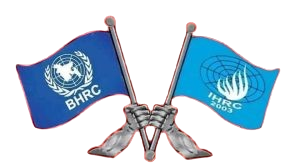
A charter is a formal document that outlines the rights, powers, and privileges of an organization, institution, or group of people. It serves as a foundational document that establishes the purpose, structure, and principles of the entity.

Illustrations:
1. United Nations Charter: The founding document of the United Nations, signed in 1945, which outlines the organization’s purposes, principles, and structure.
2. Magna Carta: A medieval charter signed by King John of England in 1215, which established the principle of the rule of law and protected the rights of nobles and commoners.
3. European Charter of Fundamental Rights: A charter adopted by the European Union in 2000, which enshrines the fundamental rights and freedoms of individuals within the EU.
The IHRC Geneva Charter has similar powers of a universal charter, as it outlines the principles, objectives, and structure of the International Human Rights Commission Geneva. It serves as a foundational document that guides the organization’s work in promoting and protecting human rights worldwide.
In conclusion, world leaders and governments should accordingly grant the IHRC Geneva Charter full acceptance, recognizing its importance as a universal charter that promotes human rights, dignity, and well-being for all individuals. By acknowledging the IHRC Geneva Charter, governments can demonstrate their commitment to upholding human rights and working towards a more just and equitable world.
